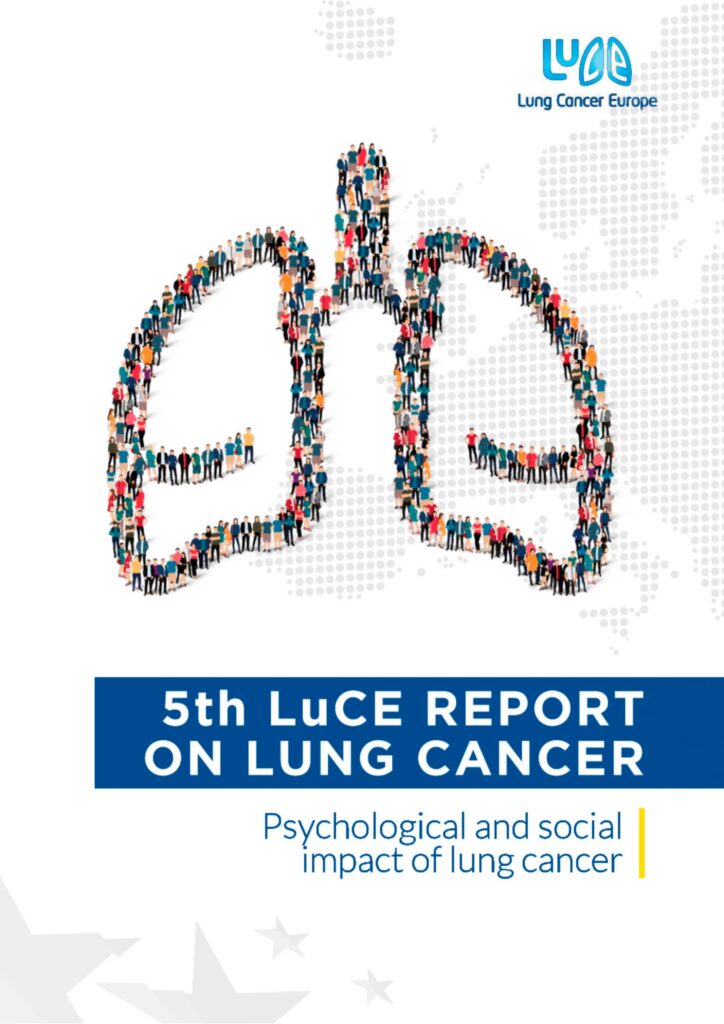
This is an annual initiative led by lung cancer patient organisations, with the purpose of raising awareness regarding the main challenges faced by people impacted by this disease across Europe.
Download the 5th LuCE Report on “Psychological and social impact of lung cancer”
Download the executive summary:
English
French
Spanish
Italian
German
Polish
RomanianDownload the infographics:
- English: · Patients
· Caregivers
· Supportive care - French: · Patients
· Caregivers
· Supportive care - Spanish: · Patients
· Caregivers
· Supportive care - Italian: · Patients
· Caregivers
· Supportive care - German: · Patients
· Caregivers
· Supportive care - Polish: · Patients
· Caregivers
· Supportive care - Romanian: · Patients
· Caregivers
· Supportive care
Lung cancer is the biggest cancer killer worldwide. In Europe, there are 470,000 new diagnoses and more than 380,000 lung cancer deaths every year1. One in five of all cancer deaths in Europe are due to lung cancer. Raising awareness, screening, early detection and access to treatment and clinical trials remain essential to improve outcomes. The pathway from presentation to diagnosis and treatment through to survivorship issues can be bewildering and complex. As such, there is a wealth of information available on the symptoms of lung cancer and the physical side effects of treatments, whether radical or palliative in intent.
The aim of our 5th LuCE report is to get a better understanding of the psychological and social impact of lung cancer, not only for people with the disease but also for those in a caregiving capacity. Caregivers (family members and friends) provide physical, practical and emotional support on a daily or as-needed basis. This can include a range of responsibilities including helping manage symptoms and side effects, giving medications, providing transport to and supporting hospital appointments, assisting with meals, household chores and finances. Although the focus of caregivers is the person they are caring for, it is important for caregivers to also have access to support.
People with lung cancer often have multiple symptoms simultaneously related both to the primary disease and treatment(s). The impact on quality of life can be significant with a profound effect on emotional, social and spiritual well-being. Our lives and healthcare systems have of course changed during 2020 due to the impact of COVID-19. We have all experienced the challenges of coronavirus, but lung cancer does not wait for a pandemic to pass. The importance of addressing the psychological and social impact of a lung cancer diagnosis is therefore even more complex. In order to provide a holistic approach to the care of all of those impacted by lung cancer, access to appropriate support is essential regardless of geographical location or socio-economic status.
